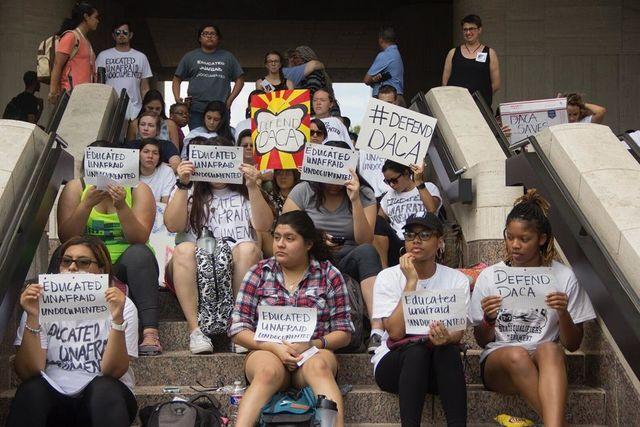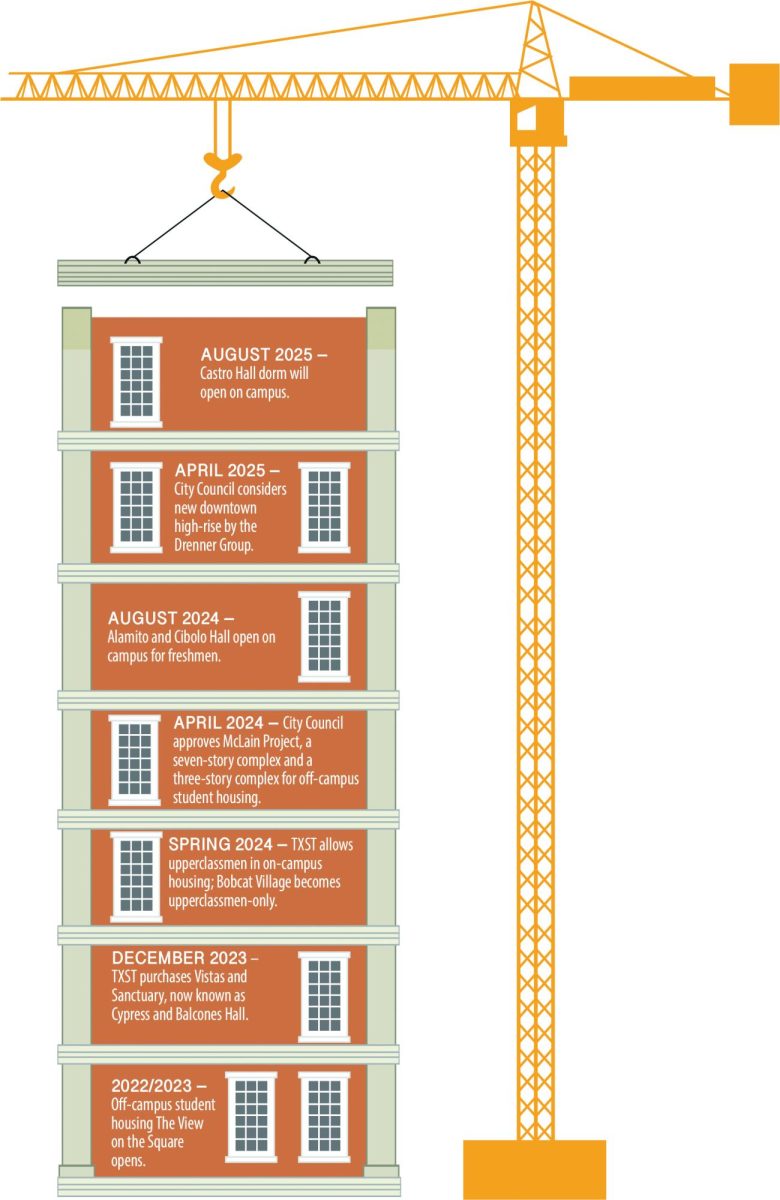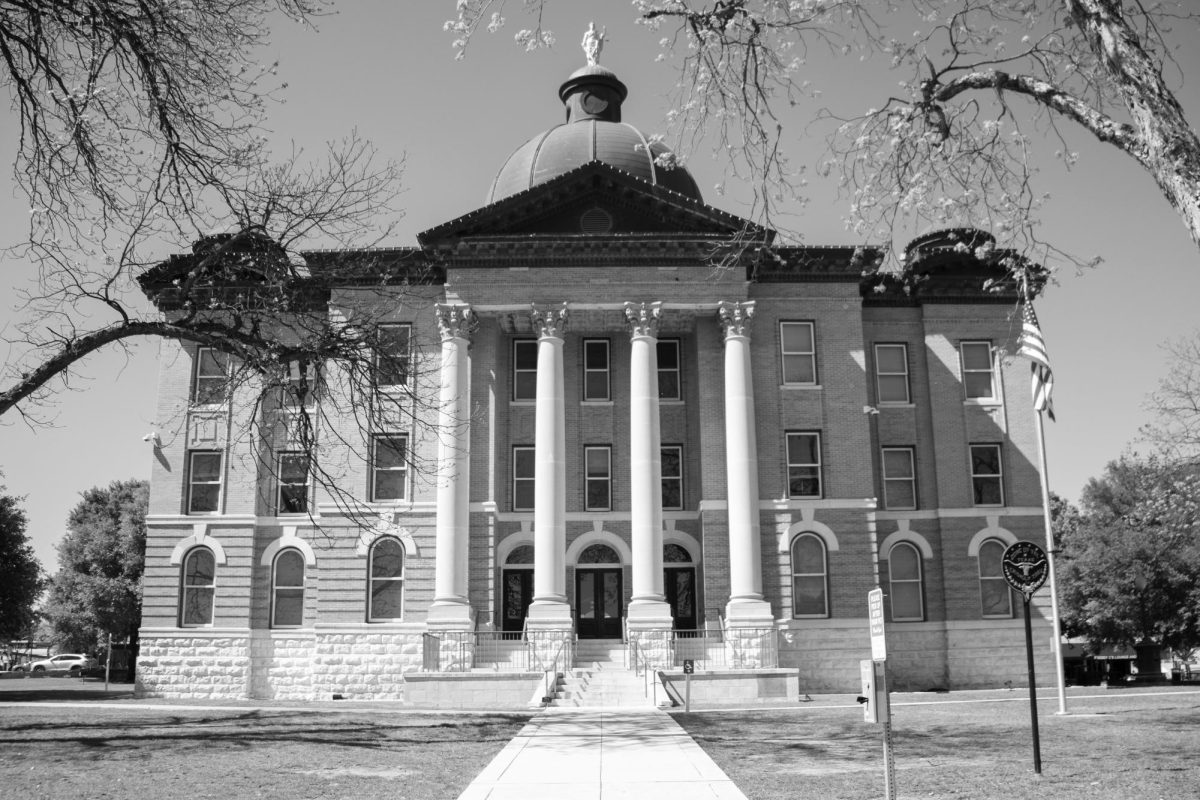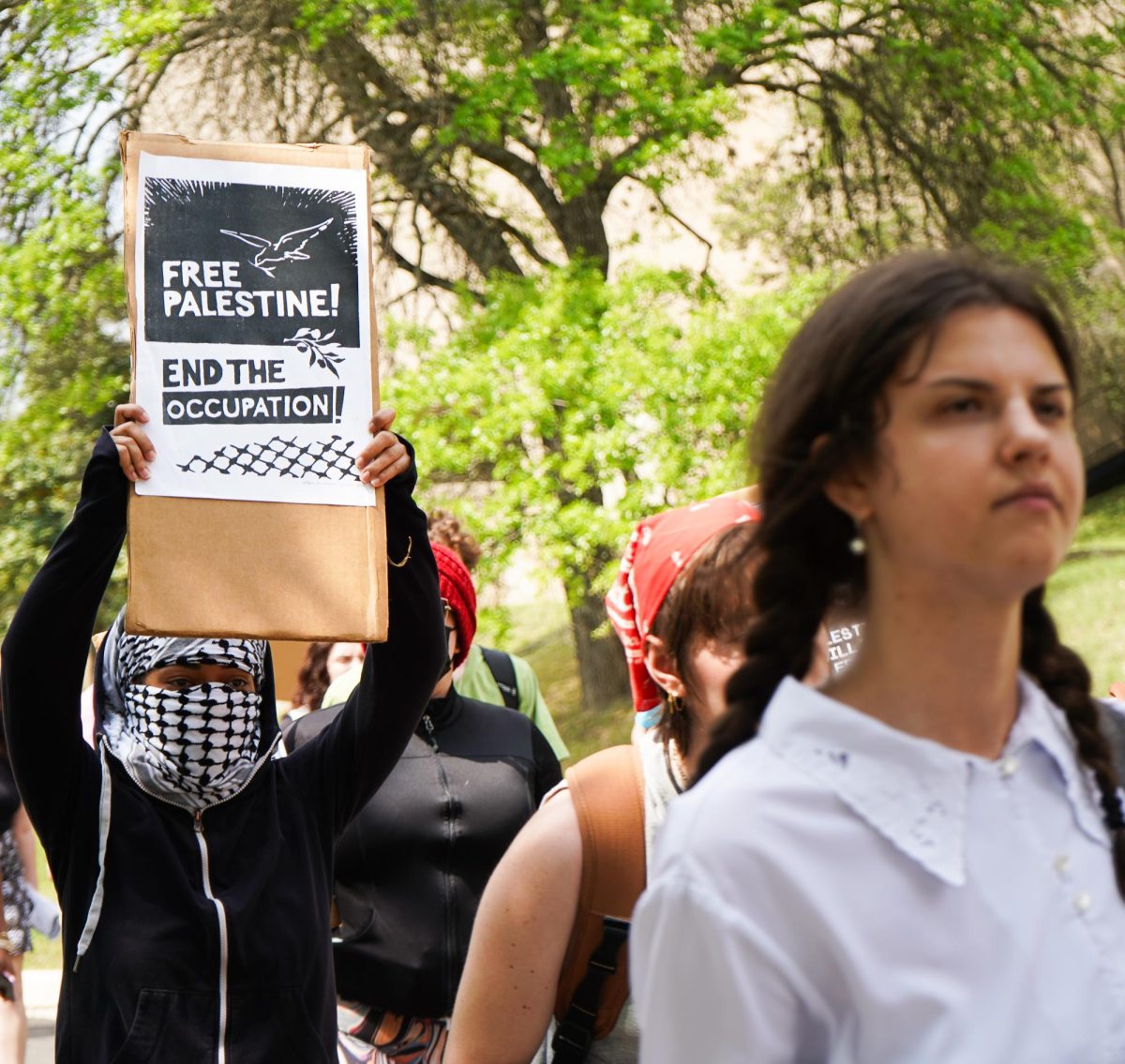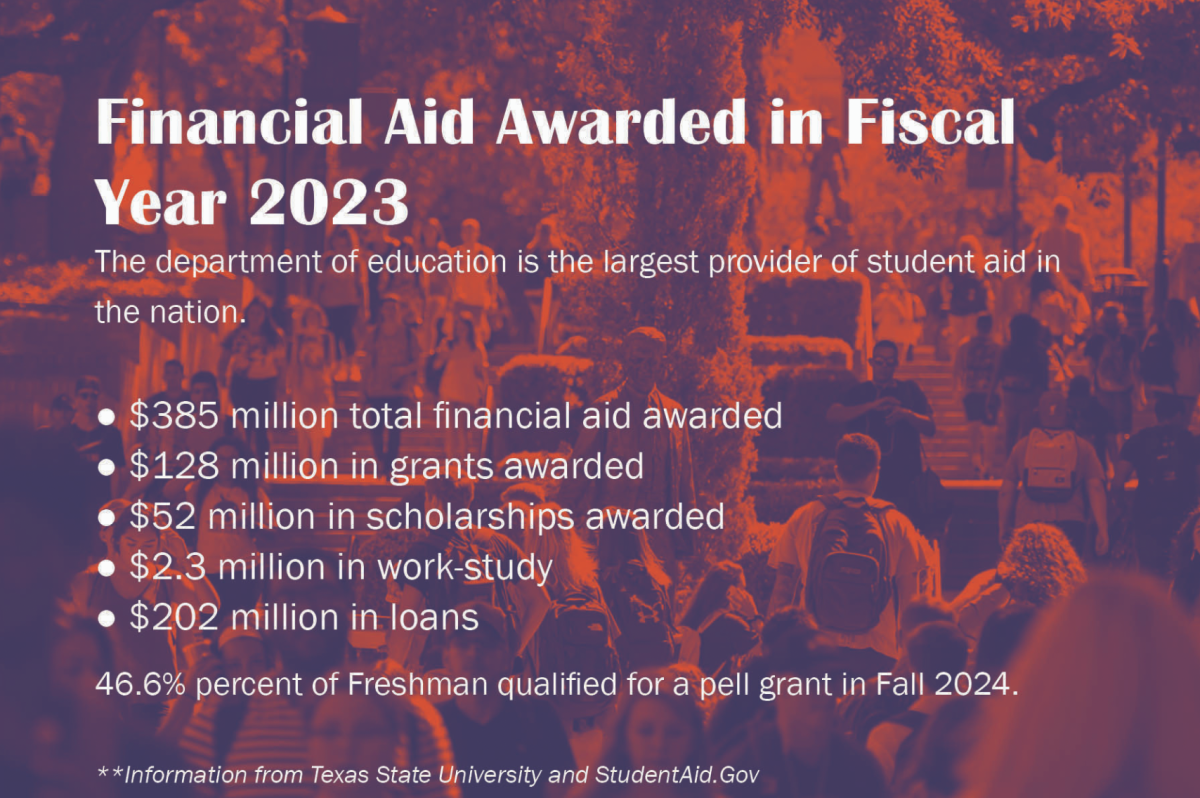Michelle Sotolongo can easily recall the anxiety, uncertainty and emotions of feeling like an “other” that often fall upon undocumented students.
“When you have to go outside, when you have to interact, when you have to go to class and all you’re hearing is, you know, the stuff from the news or what the governor is saying, it’s literally demoralizing and dehumanizing,” Sotolongo says. “Basically, your whole existence is an issue for someone.”
As the coordinator for Texas State’s Monarch Center, she connects immigrant students of varying legal statuses with support groups and legal help, working with a team of individuals to solve the unique problems these students may face.
“We’re trying to streamline the communication flow, make sure it’s consistent and accurate and confidential,” Sotolongo says. “That all these interactions are as supportive as possible. So, going through me, I can listen to what their concerns are or what their needs are, and, then, maybe I have an answer, maybe I know somebody on campus who can facilitate a solution.”
“And then try to help the students without them having to be bounced back and forth between different offices and have to retell their story and re-self-identify, if they’re even comfortable doing that. And just to treat everything as sensitively as possible.”
According to Texas State’s immigration policy, immigrant students, including undocumented and DACA students are “valued members of the Texas State University community,” and are provided confidentiality and support from the university. As the political climate surrounding immigration heats up, however, students are questioning the safety of their status on campus.
Over the past six months, Gov. Greg Abbott has doubled down his efforts to secure the Texas-Mexico border by declaring a State of Disaster, referring to immigrants as an “invasion,” claiming they are bringing COVID-19 into Texas and clearing out Texas jails to make room for undocumented immigrants.
According to Mano Amiga Co-founder Karen Munoz, this rhetoric is a fear tactic similar to those used in terrorism.
“What they’re instilling is beyond fear,” Munoz says. “But, for undocumented people, the fear is not just incarceration. Incarceration means deportation, means family separation.”
Because incarceration for even small crimes often leads to major consequences for immigrants, especially for those who are undocumented, Mano Amiga and other advocacy groups have continued to advocate for a cite and divert program. If passed, this would allow low-level offenders to avoid jail time in return for community service, paying restitution or completing other services recommended by a defense attorney.
Sotolongo says cite and divert would greatly benefit student immigrants, as they are often held to a higher standard than their citizen peers.
“College students do things that college students do, and being an immigrant can have a completely different outcome from a citizen student when it comes to those things,” Sotolongo says.
The program has yet to be passed on the local level due to delays, despite local officials announcing its launch in July 2020.
Still, discouraging rhetoric that promotes criminalization is not the only issue immigrants and undocumented students face. For Javier Espinosa, an engineering junior, the most difficult aspect of his legal status is the financial strain that comes alongside it. Espinosa recalls the difficulty of paying for college while being unable to get a job or apply for most scholarships as he was not a permanent resident.
“I didn’t know if I qualify for resident tuition, or like out of state or international. And I was kind of freaking out. These [international] prices, they’re crazy,” Espinosa says. “I wouldn’t have gone to Texas State at all.”
Espinosa says attending the university came with masses of stress. Despite having lived in Texas for three years, he still had to pay non-resident international tuition, which is almost twice as much as U.S. resident tuition, standing at $41,400 a year while resident tuition rests at $26,620.
Some students who have emigrated from other countries find themselves facing similar financial strains as Espinosa, which makes focusing on their degrees a difficult task. Financial assistance for immigrant students, whether it be in the form of scholarships or emergency grants, is the Monarch Center’s most prominent need.
While the Monarch Center does not offer scholarships at the moment, it works with Career Services to assist immigrant students with job applications, resume building and communicating their legal statuses to employers.
Texas State’s Student Community of Progressive Empowerment offers a grant to assist with DACA renewal fees and the Financial Aid and Scholarships department works to help immigrant students find aid. Mano Amiga also offers help with emergency legal fees related to immigration status.
For more information on resources for immigrant students, visit its site.
Categories:
Texas State, local organizations support immigrant students as state border tensions rise
Madelyn Weirich, News Contributor
July 16, 2021
A group of students sit on the steps of Alkek Library and hold up signs with slogans such as, “#Defend DACA” and “Educated Unafraid Undocumented.” The Attorney for Students (AFS) Office is located at LBJ Student Center 5-1.5.
0
Donate to The University Star
Your donation will support the student journalists of Texas State University. Your contribution will allow us to purchase equipment and cover our annual website hosting costs.
More to Discover



